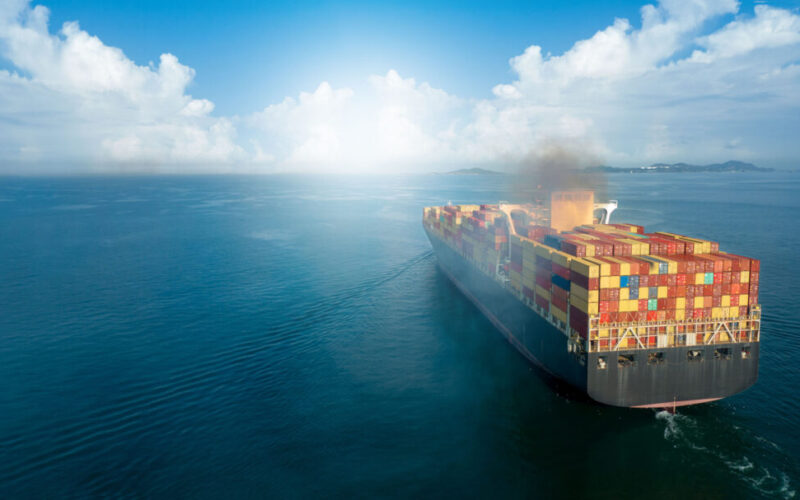ICS proposes GHG pricing mechanism to aid net zero goals
Time:2024-08-19 10:32:53View:2002
The International Chamber of Shipping (ICS) has presented a new proposal to ensure delivery of the target to achieve net zero GHG emissions from international shipping by or around 2050.

At the heart of the proposal is a GHG Fee, charged to ships per tonne of CO2 equivalent (CO2e) emitted, combined with a “feebate” mechanism to incentivise the accelerated production and uptake of zero/near-zero GHG marine fuels, such as green ammonia, hydrogen and methanol, sustainable biofuels, and new technologies such as on-board carbon capture.
While the principal purpose of the proposed maritime GHG pricing mechanism is to narrow the significant cost gap with conventional marine fuels, around $2.5 billion per year would also be allocated to an “IMO Net Zero Shipping Fund” to support maritime GHG reduction efforts in developing countries.
According to the ICS, this will help to ensure that shipping’s transition to net zero will be truly global and that green fuels will be available in all ports worldwide.
The ICS does not take a specific view on the GHG Fee amount, as it depends on the agreed reward rate per tonne of GHG emissions prevented by ships. For the first five years, if the IMO sets the compensation rate at around $100 per tonne of CO2e prevented, a GHG Fee of approximately $60 per tonne of conventional fuel oil consumed by ships could be sufficient, said the organisation.
The primary objective of the proposed IMO “mechanism” is to accelerate the production and uptake of new green marine fuels by reducing their cost disadvantage, with feebates (rewards) being disbursed to ships for the CO2e emissions prevented by not using conventional fuel oil.
GHG fees will be collected, and feebates disbursed, via a web-based automated IMO “mechanism”, the prototype for which ICS has already developed and submitted to IMO.
From the revenue generated from the GHG fee, an amount equivalent to 20 per cent of the revenue allocated to support the feebate programme will be transferred annually to the newly proposed IMO 2 Net Zero Shipping Fund, with this proportion subject to adjustment within five years of entry to force.
The latest proposal from Bahamas, Liberia, with which the ICS is working, will be discussed at the next round of IMO negotiations, which resume in London on 23 September, to develop a new package of mid-term GHG reduction regulations for international shipping, for adoption by governments in 2025.
ICS Secretary General, Guy Platten said: “A GHG pricing mechanism using a flat rate GHG fee and a feebate element will be vital to bring about the rapid development and uptake of green marine fuels.
“To incentivise the production and use of green marine fuels our proposal includes a carefully thought out feebate mechanism, which is fuel neutral, to incentivise prevention of up to 100 million tonnes of GHG emissions per year during the first five years.
“This will help de-risk investment decisions and enable shipping to rapidly reach a “take-off” point in the use of green marine fuels, something which is needed urgently as their current availability is virtually zero.
“It is time for governments ‘bite the bullet’. Unless a distinct GHG pricing mechanism and feebate programme are included in the IMO regulations adopted next year, we genuinely fear that shipping’s transition to net zero by or around 2050 will be unlikely to succeed.”
Earlier this summer, a green shipping conference in Belize City, Belize boosted the International Maritime Organization (IMO)’s work to support Caribbean countries in decarbonising their maritime sector.
Address: 12 Floor, Tian Xin Building, No.27, Feng Cheng Erlu Electrical and Technological Development Zone Xi'an, China, 710018
Tel: (+86) 029-86184112; (+86) 029-86184113
Mobile:
E-mail: webmaster@hajomech.com
CopyRight © 2025 HAJOMECH

